Ricochet is the best place on the internet to discuss the issues of the day, either through commenting on posts or writing your own for our active and dynamic community in a fully moderated environment. In addition, the Ricochet Audio Network offers over 50 original podcasts with new episodes released every day.
 Texas, 1979: I Got Here as Soon as I Could
Texas, 1979: I Got Here as Soon as I Could
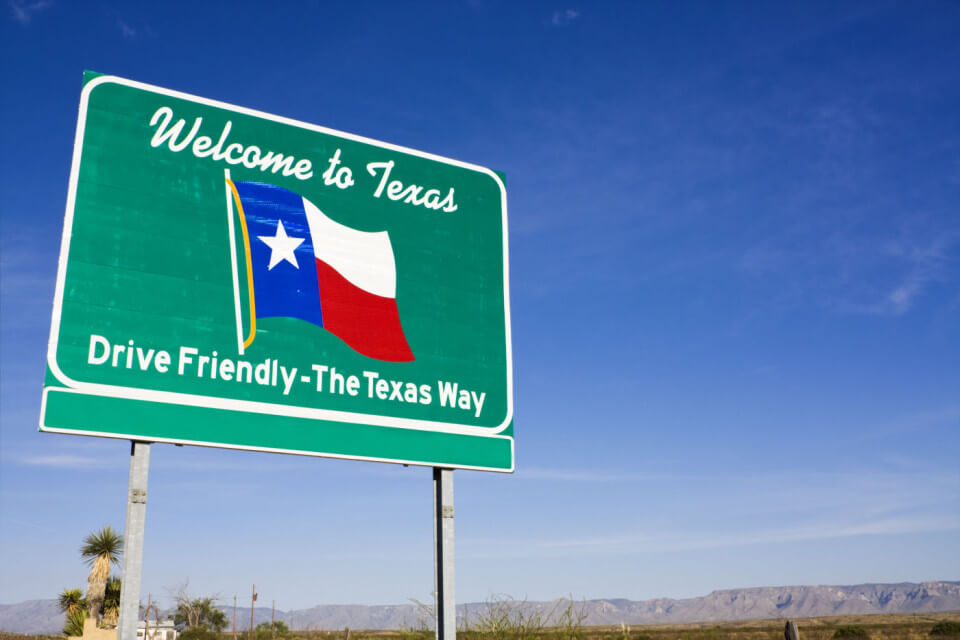 I wasn’t born in Texas, but I got here as soon as I could. It is a popular bumper sticker in Texas. In a way, it describes my life.
I wasn’t born in Texas, but I got here as soon as I could. It is a popular bumper sticker in Texas. In a way, it describes my life.
My wife Quilter and I are natives of Ann Arbor, Michigan. It was a nice place to grow up between the 1950s and 1970s, when the two of us were growing up. When I graduated from college? Not so much. In 1979, Michigan was going through a recession which was emptying out the state. Jobs were not to be had, perhaps especially in Ann Arbor. The supply of labor was sky high due to new Michigan graduates who wanted to stay. Thanks to the Michigan recession, the supply of jobs was about as low as a submarine’s keel at test depth.
Quilter and I could have lived in my parent’s basement (literally – they had a suite built into it). Back then, when you were married and had a freshly-minted BS in Engineering, you did not go that route. Besides, thanks to the engineering bust of 1972-74 (when I started college and no one else was crazy enough to major in engineering), the demand for freshly-minted engineers was at record levels. Outside Michigan that is.
I landed a job in Houston, Texas, during my final semester. The job had three big draws. The Houston labor market was smoking hot, Texas had no state income tax, and … I was going to work on the brand-new Space Shuttle program. In 1979, you did not get cooler than that.
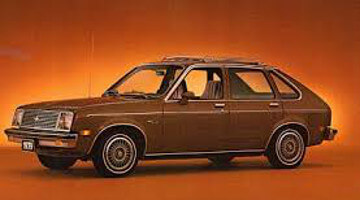
Wheels, circa 1979
I had never been in Texas before, much less Houston. Lockheed, the company that hired me, did not pay for a trip down there. (They did pay to move our worldly possessions — which were not all that much.) We packed up the furniture (and books) in a moving van, stuffed our little four-door hatchback with everything we figured we could not live without, and took off on a three-day road trip to Houston.
In many ways Houston was further from Ann Arbor than Houston is from Oxford, England, today. I spoke to my editor there yesterday by Skype.
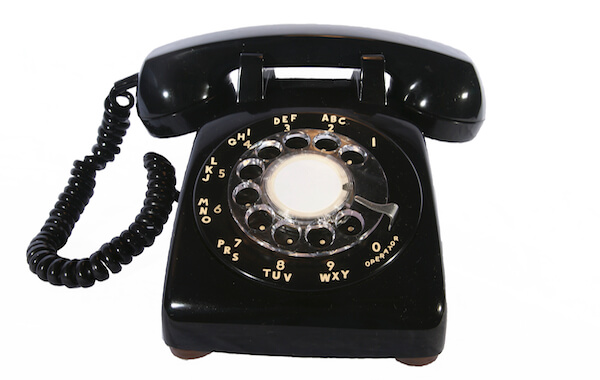
Remember these? Not if you’re under 45.
Now kids, it was like this. There was no Internet in 1979. Nor cell phones, much less smart phones with all sorts of useful apps. Yes, you could speak to someone on a landline telephone across the whole country, but back then that was this thing called a “long-distance phone call,” which you paid for — by the minute. It was expensive, too. And sometimes long distance was across the road. (A year before, it had still been a long-distance call from Nassau Bay on the south side of NASA Road 1 to the Johnson Space Center on the north side.)
You wanted a hotel reservation? You went to a travel agent. (Back then every town had one — right next to the shop where they sold buggy whips and poodle skirts.) Route planning? Get a triptik from Triple A. (Fortunately, my parents were members.) Credit cards? If you were right out of college you had a gasoline card, and maybe a Sears or Penney’s card, but not BankAmericard (now Visa) or Mastercard.
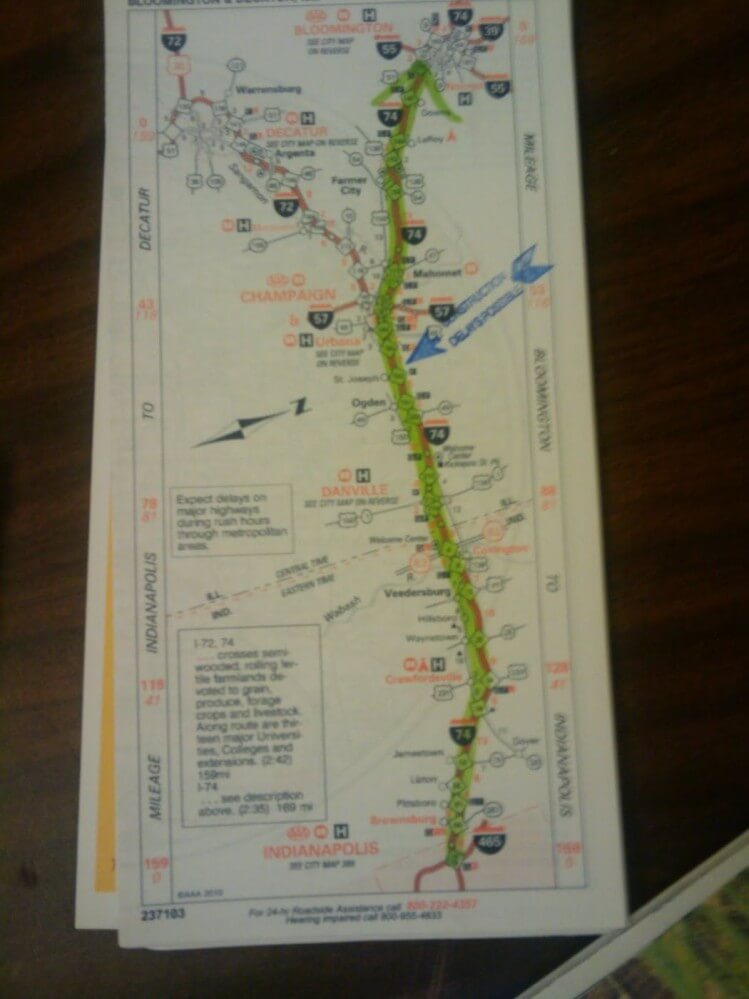
State-of-the-art navigation, circa 1979
I had a Phillips 66 card, an Amoco card, and that was it. We loaded up on traveller’s checks — special paper instruments you bought at the bank to exchange for goods when you travelled — and used them for purchases other than gasoline. We hoped we could find enough of the right kind of gas stations along the route. Did I mention that the second OPEC oil embargo was going on and gasoline prices were sky high? If a station had gasoline, that is.
Mark Twain once said all you need is confidence and ignorance and success is sure. Quilter and I had plenty of both. So we blithely got in our car and set off for Houston on Memorial Day Weekend in 1979.
We followed US 23 south through Kentucky into Tennessee, and spent an evening somewhere between Nashville and Memphis. Our car had no AC. Back then, AC was an option on economy cars. You did not need it much in Michigan. We really noticed its lack by the time we hit Cincinnati. (I had been there three months earlier, when the temperature was 23 degrees below zero. It was making up the deficit in average annual temperature.)
We reached Texas at the end of the next day, spending the night in Texarkana. Why were we moving so slowly? Well, kids, back then the maximum speed limit on the Interstates was 55 mph. As a Yankee in the South, I figured I was fair game for the local constabulary if I exceeded it. I stuck to it, as did most everyone else with license plates from states north of the Ohio River. Except for the ones stopped by the side of the road, having conversations with the local constabularies.
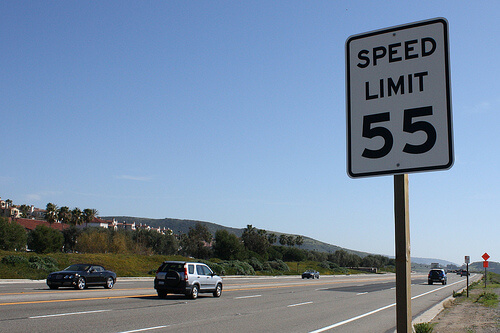
The Sun Has Riz, The Sun Has Set, and We Ain’t In Ta Texas Yet
At the motel we stayed I got a first introduction to Texas. The desk clerk asked if we wanted to join the local club. It was only $1. Why would I want to join a club? Texas then had dry counties, where alcohol could not be sold, except at private clubs. The county we were in was one of those. How … interesting.
The next day we drove down US 59 to Houston, using Texas 2-55 air conditioning (two windows down at 55 mph). Then all the cars ahead slowed down and started swerving. When we reached that spot we saw an Armadillo running back and forth across the road. You would not think those critters could move so fast on those tiny legs, but they did. I wondered why everyone was avoiding it. Thinking they knew something I did not I decided to do the same. (Later I learned if you drove over them, they would jump and hit your engine mount at 55 mph. Bad news for the armadillo and your car, both. Good news for the mechanic who fixed it.)
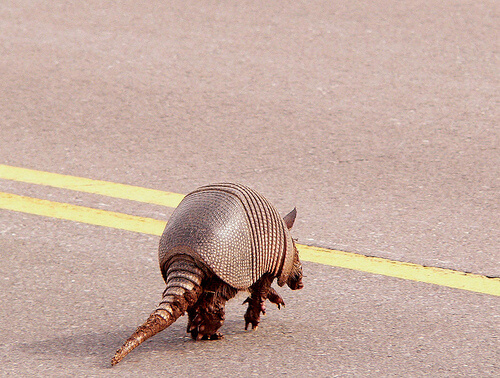
Why did the armadillo cross the road?
We reached our motel in Houston by early afternoon. We got our first lesson in Houston geography. I had asked for reservations at a Triple-A rate place in southeast Houston. The Space Center was in southeast Houston, right? Except our travel agent’s idea of southeast Houston was Old Spanish Trail at the Gulf Freeway. The Space Center was another 25 miles down the road. By Michigan standards (back then at least), it was a long drive. No problem. We checked in for the day — the next day was Sunday. We would scout out a motel a little closer, and move there.
For two kids from Michigan, Houston was something. The heat and humidity were breathtaking. Literally. Someone had left the oven on somewhere with a big pot of water boiling. It was still May! On top of that, the place we stayed had palms filled with guinea pigs. At least they sounded like guinea pigs. When we looked more carefully we discovered they were grackles. Big ones, viewing us through hostile eyes. If they had been four times larger they could have been the velociraptors from the then-unwritten Jurassic Park. Michael Crichton must have spent time in Houston.

Got my eye on you, bub.
The next morning we decided to take it easy. It was Sunday. Texas then had blue laws preventing the sale of most goods except groceries and gasoline, so we could forget buying stuff we needed but had forgotten about when starting out.
We turned on the television. VHS TV. Broadcast. Local stations, and local shows. Cable was the latest thing, and there were few cable networks — most national channels were rebroadcasts of some city’s independent stations, like Ted Turner’s in Atlanta. CNN was a year from being born. No satellite radio, either, or national radio talk shows. Besides, this was an opportunity to learn about our new home.
A show was going on. It seemed to be something about local restaurants. This guy was screaming into the camera about SLIME In The Ice Machine (I could hear the capital letters), and How He Would Leave His Wife If Her Kitchen Were THIS Dirty. He was wearing a white suit, had strange blue tinted glasses, and appeared to have some strange, flat mammal perched on his head. It certainly was not human hair.
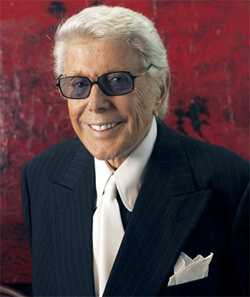
Our welcome to Houston
After five minutes of watching him, Quilter and I looked at each other. Finally she said “Let’s go back. The people here are weird.”
Instead, we stayed. It was the beginning of our life in Texas. Locals assured us the guy we were watching was weird. He was a local television personality, known for his eccentricities. Houstonians proved a friendly and cosmopolitan group, with a mix of Southern hospitality and folks who’d relocated from every corner of the world. I enjoy visiting elsewhere, but Texas is home. I got here as soon as I could.
Published in General, Group Writing



I’ve been in the Houston area just a couple of times. I recall that the locals did a great job of planning their trips from the air-conditioned house to the air conditioned-car to the air-condition shops and workplaces, minimizing exposure to the humidity. My last trip was to College Station to a meeting at the Bush School of International Affairs at Texas A&M in an August. Got out of the air-conditioned plane, through the air-conditioned terminal to the air-conditioned rental car and everything was quite pleasant. Between leaving the car in the parking lot and getting to the door of the school I was soaked through on a rainless day.
Rotary phones appeared in the late 1920s – at least as far as widespread use went. While today we think their use instinctive, the phone company ran short features at movie theaters to teach users how to dial a rotary phone as they introduced them into an area.
Seawriter
Ah, and then there were the old word-based phone number exchanges, like Hudson 2-3700 or Lincoln 5-9823.
My grandmother and her neighbors “shared” their phone. We always delighted in her complaints that a nosy neighbor liked to listen to her gossiping to her friends. News in that little Texas town sure traveled fast.
What you note about tarantulas is why they are considered a tasty treat in South America. If they are big enough, they through them in a fire, and once the carapace pops open after roasting, I am told they are as tasty as the most delicious crab.
I’ll pass.
Seawriter
Seawriter, we’re nearly the same age, so your ancient history reminiscences are similar to mine.
We had a RED rotary phone that must not have been a widely issued color, because we got a lot of remarks about it. Not sure why my parents would have opted for it, as they were rather staid.
I found out only recently that we have scorpions here in SE Tennessee. I’m much more vigilant with the bug spray now.
We were taught how to do this in school, and that was the late 40’s, early 50’s. We were also encouraged to think about becoming operators, because dial or not, the operators were still very important. A job for Western Electric, whose plant we visited on a field trip (obviously I went to school in Chicago), was considered to be very desirable, and probably was.
That was called a “party line,” which we had in Chicago, too. It was lots cheaper. My great grandparents on the farm also had it, including their own special ring so they knew when to answer.
Electricity didn’t come to the part of rural North Dakota where I was born until early 1948, when my mother was pregnant with me. She was a city girl who had moved to the region during WWII, so electricity wasn’t new to her. But she loved rural life and from her diaries it seems she took these things rather matter-of-factly.
I think about Robert Caro’s books about LBJ, and how important rural electrification in Texas was to the start of Johnson’s career in the early 30s. Our part of North Dakota was 20 years behind the Texas hill country.
What I’m trying to find out now from the people still living who remember those days is when our little town got phone service. From my mother’s diaries I gather that we didn’t have a phone in those days, which was an issue for my father because as a pastor with congregations spread over 50 miles, he often had need to communicate.
(In late 1973 when Mrs. Reticulator and I moved to a rural community 50 miles north of Minneapolis-St Paul, we found they still had party-line phones. There was no such thing as a private phone conversation.)
When I was at A&M, I learned the trick of bringing an extra shirt, or shirts, with me to on the days I had to walk across campus to teach. Mrs Skinner decided that the main difference between that part of Texas and home on the northern plains was that you got cabin fever at opposite times of the year.
Seems like somewhere in your hierarchy of Texas weather you need to add “frog strangler” as a description of how hard it is raining.
I moved to College Station in the fall of 1984, and realized how big Texas is on the first day it got below 50 degrees on the A&M campus. Some students were wearing shorts and t-shirts, and others wore down parkas with the hoods up.
I’m pretty late to the party but this is priceless!